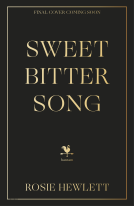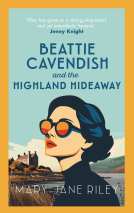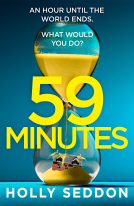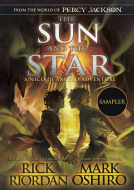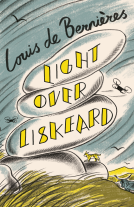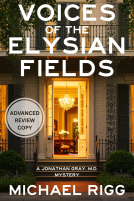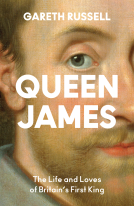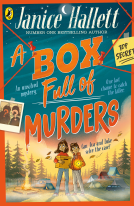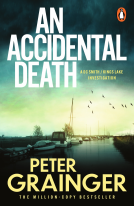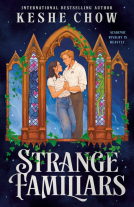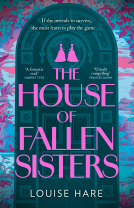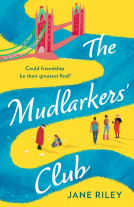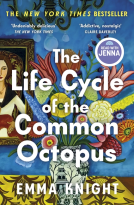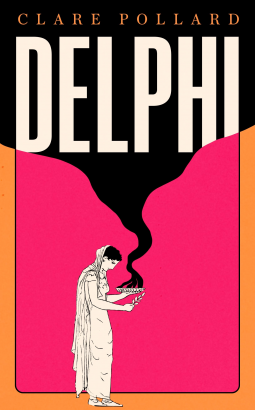
Delphi
by Clare Pollard
This title was previously available on NetGalley and is now archived.
Send NetGalley books directly to your Kindle or Kindle app
1
To read on a Kindle or Kindle app, please add kindle@netgalley.com as an approved email address to receive files in your Amazon account. Click here for step-by-step instructions.
2
Also find your Kindle email address within your Amazon account, and enter it here.
Pub Date 28 Jul 2022 | Archive Date 28 Jul 2022
Talking about this book? Use #Delphi #NetGalley. More hashtag tips!
Description
‘Consoling, harrowing, hilarious and so radically honest it leaves you reeling’ Luke Kennard
‘Dark and dangerous, disturbed and disturbing in equal measure – I loved it’ Anna Hope
‘I am sick of the future. Up to here with the future. I don’t want anything to do with it; don’t want it near me’
It is 2020 and in a time more turbulent than any of us could have ever imagined, a woman is attempting to write a book about prophecy in the ancient world.
Navigating the tightening grip of lockdown, a marriage in crisis, and a ten-year-old son who seems increasingly unreachable, she becomes fixated on our many forms of divination and prediction: on oracles, tarot cards and tea leaves and the questions we have always asked as we scroll and click and rage against our fates.
But in doing so she fails to notice the future creeping into the heart of her own home. For despite our best intentions - our sacrifices and our bargains with the gods - time, certainty and, sometimes, those we love, can still slip away …
Heartbreakingly relatable and achingly funny, Delphi is both a snapshot and a time capsule, deftly capturing our pasts, our presents, and how we keep on going in a world that is ever more uncertain and absurd.
Advance Praise
‘Vivid as fireworks, Delphi explodes with the ambivalence, rage and dread of middle years lived within a world of pandemic and climate collapse. Both terrifying and exhilarating’ Doireann Ní Ghríofa, author of A Ghost in the Throat
‘A miracle of a book’ Evie Wyld
‘Bold, brave and uncompromising, Pollard has found a way to write about the last couple of years which is both truthful and enjoyable to read, which I didn't think was possible. Exciting, rare and beautiful’ Cathy Rentzenbrink, author of Everyone is Still Alive
‘Using language that charms and beguiles, Clare Pollard cleverly creates moments of the darkest déjà vu, so that I was swept up into a story which I was both unnerved and reassured to recognize’ Claire Fuller, author of Unsettled Ground
‘Clare Pollard’s Delphi delivers an urgency unlike any I’ve experienced. I loved this book so much; the language, the humour, the style, which reminded me of both Patricia Lockwood and Sheila Heti. A brilliant novel born of searing eloquence and sinister wit’ Jackie Polzin, author of Brood
Available Editions
| EDITION | Other Format |
| ISBN | 9780241558539 |
| PRICE | £12.99 (GBP) |
| PAGES | 224 |
Average rating from 64 members
Featured Reviews
On one level, this is the story of 2020: through the female narrator's present tense, journal-alike writings we relive life in London (and other places?) from the first emergence of the virus through lockdown, gradual re-opening, the tiers, the cancellation of Christmas and the hope of vaccines alongside anti-vaxxers and covid conspiracy theorists.
It's all here: the WFH, the lack of space with couples squabbling over room to Zoom, the drinking at six to mark the putative end of the working day and us all becoming hobbyist cocktail-makers; home-schooling and delivering lectures and conference papers online with the washing drying over radiators in the background. And the outside world operating in tandem: BLM, Sarah Everard, Tory sleaze in channelling money for Test and Trace and other contracts to cronies; Trump, of course, and British government attempts to stop legitimate protests against racism, climate change and violence against women.
But on another level, this is really about chaos and human attempts to try to control the messy business of living. The narrator is a classicist researching a book on prophecy in the ancient world, and draws astute parallels between all the paraphernalia of ancient augury and our modern attempts to predict the future from astrology and tarot to political polls (the latter notoriously proven wrong in the last handful of years).
The writing is bright and smart, easy and engaging, but there's more going on here than merely a kind of contemporary Bridget Jones. It feels therapeutic to relive the recent past and process it at some distance - but this is also about how life happens moment to moment, and all we can do is live it in all its messy uncontrollability.
And is that going to be the most striking book cover of 2022?!
 Camille O, Librarian
Camille O, Librarian
Delphi by Clare Pollard is about a Classics academic and her family's experience of the pandemic and her attempt to make sense of it through her interest in the history of prophecies. I think this will be one of the books of the year - Pollard is one to watch.
Pollard stream of flowing commentary was quite brilliant. She mixes classical thoughts, Greek myths and everyday life under covid with ease and intelligence.
She explores past, present and future with an emphasis on divination, all types and methods and further more examines our need for it. Why we need to know, to feel safe. Why we've replaced religion with social media with it's constant attention and instructions. Although we might complain of big brother watching us, do we secretly love having someone watching us - selfie anyone?
 Educator 885178
Educator 885178
I devoured this novel in one sitting, but had to leave and re-read to really decide what I thought about it. It definitely wasn't what I expected, having opted to read because I thought it would be a myth retelling. Instead, the novel charts the first eighteen months or so of the coronavirus pandemic through the perspective of a classicist who is researching for a book on divination. The novel is split into short chapters under the names of different types of divination, the themes of which are loosely related to the chapters themselves. Despite being light on plot, <i>Delphi</i> still manages to be surprising, which is a feat in itself considering that so many of us have had such similar experience over the last two years.
Although I found this novel extremely compelling and easy to read, I'm not sure I was really prepared to read about the pandemic when it is still so close, and wouldn't have sought out a book about it. I found the narrator and her experiences convincing, especially the slow building of domestic tasks and paid labour that her husband is unaware of or unwilling to acknowledge. I liked the framing around the futility of divination, underscored by the narrator's turns to an online psychic. The references to myth and ancient history serve to underline the arbitrary nature of the double tragedy at the novel's culmination. Although I was thrown by the framing around COVID, I did enjoy this book and would recommend it.
Thank you to Fig Tree and Net Galley who provided me with a free ARC in return for an honest review.
 Media/Journalist 698842
Media/Journalist 698842
This clever debut is written like a piece of autofiction –Pollard is at pains to point out in her Acknowledgements that this is not her life and family she's writing about – with a side order of metafiction (the narrator, in struggling to write a book about prophesies does, in effect, write a book about prophesies) for good measure. Set very firmly in the just-recent past of the pandemic, this is not, perhaps, one for those in love with the current trend for retelling classic tales, but fans of Louise Erdrich's latest, The Sentence, or the likes of Jenny Offili are in for a treat. 4.5 stars.
COVID-19 hits London. A classics academic, when the family trip to Delphi is cancelled, becomes obsessed with learning the future. As the pandemic spreads, her husband Jason steadily ignores her and drinks more, while their only child grapples with severe asthma and deteriorating mental health.
I have never read anything quite like this before and I loved it. The short chapters punctuated with sharp observations on human behavior are reminiscent of Jenny Offill's Dept. of Speculation. The writing is pithy and voluptuous in turn (Pollard is a poet and this is her debut novel). The many references to Greek mythology, to writers (both modern and in antiquity) and to modern philosophy are fascinating.
In the future, this book will be read as a chronicle of how a middle-class family coped--and did not cope--with lockdown. Each chapter is titled after a different form of prophesy, from reading bloody entrails to the contemporary scanning of social media. It's an exploration of how we humans try to deal with uncertainty, with loss, with change. It's a quiet gem of a book and I urge you to read it.
 Bookseller 684739
Bookseller 684739
The Covid-pandemic has really started to impact literature - and I'm glad for it. I think lots of people read to find themselves, or others, in fiction, and this book is a beautiful example of that. It is both familiar and strange, and with great, realistic characters.
I have recently been swept up in Greek Mythology re-telling’s and so I was really excited to read more from this debut novel. What I found was totally unexpected. The novel centres around an unnamed female narrator who is a classics academic researching ideas of prophecy amidst the Covid-19 pandemic. Whilst engaging with all the familiar characters from Greek myth: Zeus, The Furies, Helen, Cassandra tied up amongst them was an exploration of a more recent event in the reader’s consciousness and one that defied any sense of prophecy.
Aside from Sarah Water’s text The Fell, I had yet to read a novel that had dealt with the pandemic in any way and I quickly found myself experiencing a sense of déjà vu but also trepidation and unease. The narrator is trying to research her book, look after her young son who is himself experiencing mental trauma and maintain a relationship with her husband. All the characters are struggling to compute the lockdown, the restrictions, the news and their uncertainty and buckling felt all too familiar in a world that is still very much living through the effects of an event that has been unparalleled in recent human history.
I feel I may have got more out of this if I had a clearer working knowledge of all the references but the novel has given me lots of places to research and look up and so it may benefit from a second reading. However, that is not to say that I did not enjoy it and there were moments that were deeply melancholy but also darkly comic. Irritated by her husband ‘working’ in the office all the time, a consequence being he rarely gets involved with domestic duties she fiercely exclaims to the reader, ‘the snakes in my hair hiss at him to fuck off’ which felt like a comment on women taking on a lot of the burden of responsibility for childcare and household tasks but also the idea of being blamed and typecast as unhinged being an age old concept.
The relationship and anxiety the narrator holds for her son was both moving and poignant. Fears over how the next generation will respond and the impact this event had on them is very much at the fore of the book, ‘He was so beautiful and vulnerable it was intolerable’ The idea that the perpetual immediacy of loved ones but also the separateness of the lives being lived and the isolation it breeds was impactful and effective. How we respond to trauma and the particular world trauma of Covid-19 is something that I am sure will be explored for many more years to come.
This book has me confused in all the best ways, it was absolute chaos -which is exactly what the author was writing about. The pandemic. Working from home, being locked up with the same people for days, weeks and months at a time with no break. Ghosts towns, supermarket brawls. The world fell into utter chaos when the pandemic hit and this book captured that beautifully. I enjoyed the references and metaphors to Ancient Greece littered throughout the book, but I was going on the assumption that it would be more of a mythological book than a book about 2020. Nevertheless, I thoroughly enjoyed it!
Readers who liked this book also liked:
Rick Riordan; Mark Oshiro
Children's Fiction, LGBTQIA, Teens & YA
Louise Hare
Historical Fiction, Multicultural Interest, Mystery & Thrillers
Emma Knight
General Fiction (Adult), New Adult, Women's Fiction
